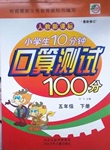题目内容
—Did Hans take part in the contest?
—No, at the last moment his courage _____ him and he ran away.
- A.ignored
- B.declined
- C.failed
- D.lost
C
试题分析:考查单词意思和时态,ignored意思“忽略”, declined意思“谢绝”,failed表示在能力上有负于,lost意思“丢失”,由后面的句子he ran away可以知道是一般过去式,句子意思“在最后一刻他失去了勇气逃跑了”,所以选C
考点:考查单词意思
点评:固定词组take part in意思“参加”,侧重参加某向群众性、集体性的事业、活动或工作,突出参加者在其中发挥一定的作用;participate正式用语,特指参加团体活动,暗示以一个积极角色参加;join普通用词,指加入党派、团体或游戏活动等;attend侧重参加或出席会议或学术活动等。固定词组run away意思“逃跑”。
试题分析:考查单词意思和时态,ignored意思“忽略”, declined意思“谢绝”,failed表示在能力上有负于,lost意思“丢失”,由后面的句子he ran away可以知道是一般过去式,句子意思“在最后一刻他失去了勇气逃跑了”,所以选C
考点:考查单词意思
点评:固定词组take part in意思“参加”,侧重参加某向群众性、集体性的事业、活动或工作,突出参加者在其中发挥一定的作用;participate正式用语,特指参加团体活动,暗示以一个积极角色参加;join普通用词,指加入党派、团体或游戏活动等;attend侧重参加或出席会议或学术活动等。固定词组run away意思“逃跑”。

练习册系列答案
 小学生10分钟口算测试100分系列答案
小学生10分钟口算测试100分系列答案
相关题目
—Did Hans take part in the contest?
—No, at the last moment his courage _____ him and he ran away.
| A.ignored | B.declined | C.failed | D.lost |
—Did Hans take part in the contest?
—No, at the last moment his courage _____ him and he ran away.
|
A.ignored |
B.declined |
C.failed |
D.lost |